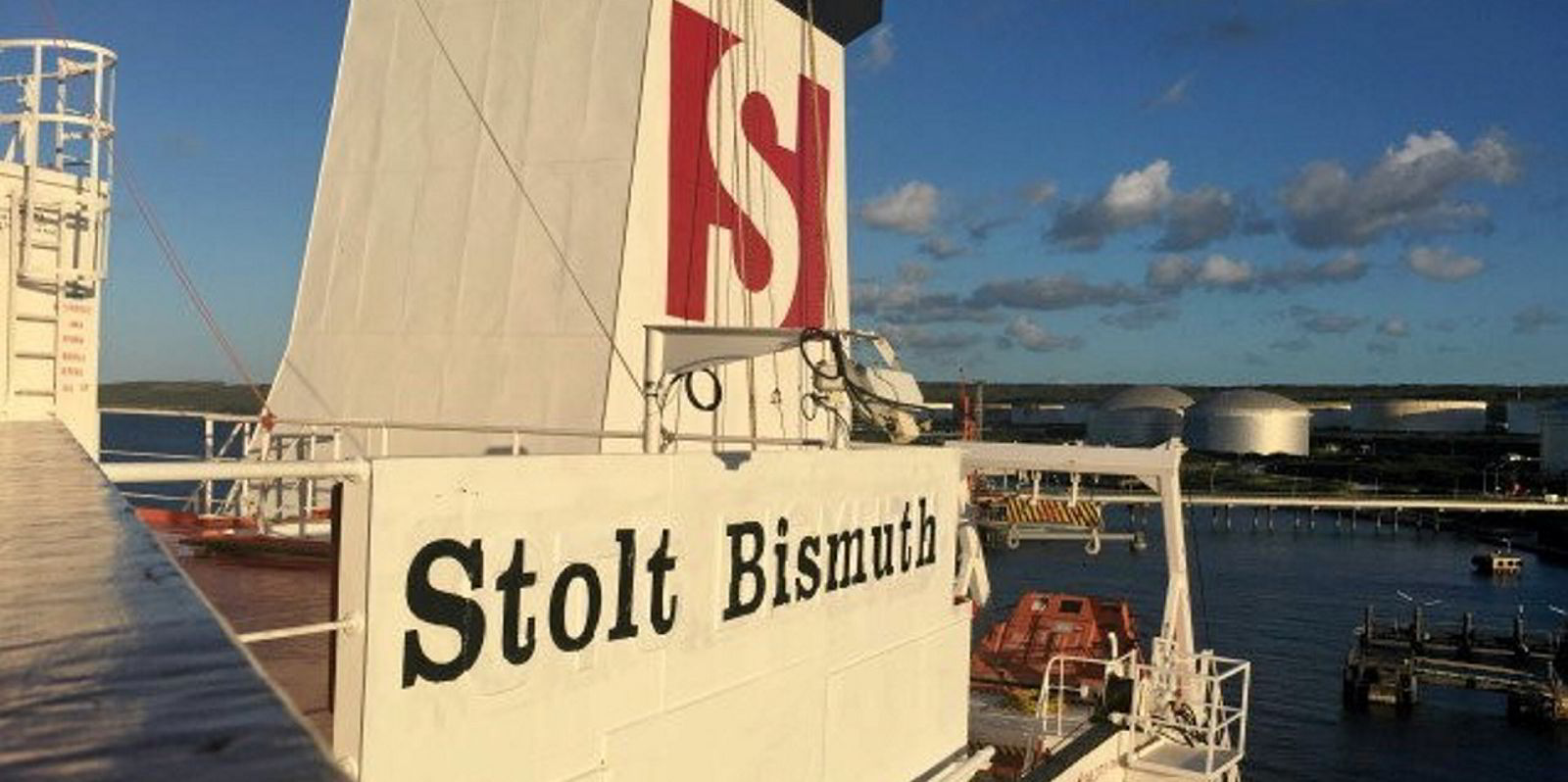Stolt Tankers has said that a trial to burn biofuel on a transatlantic voyage has produced "very positive" results.
The Netherlands-based chemical carrier operator said a trip from Rotterdam to Houston showed a reduction in well-to-exhaust CO2 emissions of between 85% and 90% compared to conventional bunkers.
The 37,200-dwt Stolt Inspiration (built 1997) was partly powered by biofuel produced by Dutch group GoodFuels from sustainable and certified feedstocks.
The 180 tonnes of bunkers, derived from used cooking oil, tallow and waste animal fats, were loaded in April.
No modifications needed
The biofuel was not mixed with either marine gasoil or very low-sulphur fuel oil.
"Initial trial results were very positive," said Stolt Tankers. Engines and boilers operated as expected without modifications.
"The Stolt Tankers team continues to investigate the viability of biofuels, considering availability and costs, which are typically around 10% higher than existing fuels."
The Stolt-Nielsen-controlled shipowner had been expecting to see a reduction of between 80% and 90% in emissions.
Stolt Tankers president Lucas Vos said: "It's great to see the positive results of the biofuel trial. We are exploring several alternative fuels for our fleet as the industry moves towards a carbon-neutral future."
Waste-based fuels preferred
GoodFuels has carried out similar test runs with tanker owners such as Stena Bulk and Eastern Pacific Shipping.
The use of biofuels is generally considered a carbon-neutral process, as the organic matter used to produce them roughly absorbs as much CO2 as it releases when burned.
Waste-based biofuels are generally preferred as there have been worries that bunkers produced from crops would lead to higher food prices.
Stolt Tankers operates a fleet of 152 chemical tankers.






